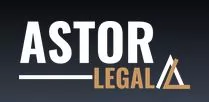- in United States
- with readers working within the Media & Information and Metals & Mining industries
- within Law Department Performance, Real Estate and Construction, Food, Drugs, Healthcare and Life Sciences topic(s)
Despite years of hard work and strong community support, a bill to make medicinal cannabis use a defence against drug driving charges has been rejected by NSW parliament.
David Shoebridge, a member of parliament from the NSW Greens, moved the bill.
Currently, the law makes it illegal to drive with any amount of THC in your system, regardless whether a person is impaired.
The controversial law has led to outcry from both community activists and politicians who supported the bill.
Medicinal cannabis users defiant
Driving with any amount of THC in your system is a criminal offence in all Australian states.
However, many users of medicinal cannabis maintain that they will continue driving.
An unnamed medicinal cannabis user told the media, "I just think if I get busted, I get busted, and I'll argue my case in court because I think the laws are stupid."
Another user told reporters that he stopped driving when he started taking a low THC oil to help with his autism.
It allowed him to study at TAFE, but he lives in a small country town. Driving to TAFE takes him 20-minutes. But now, he has to take two buses each way.
"Yeah, it's inconvenient, but I've never had this focus for a course - or anything before - in my life. And there are too many pros to outweigh the disadvantage of not having a licence."
His mother agrees, comparing it to drink driving, "(p)eople are allowed to have a small amount of alcohol without it impairing them. I imagine that having a small amount of THC would be a similar thing. Perhaps even less of an impairment."
Experts disagree on medicinal cannabis
Experts have also weighed in on the laws.
Dr Karen Hitchcock is a pain specialist who prescribes cannabis to her patients. She suggests that there are parallels with alcohol.
"By the time they wake up in the morning, they won't be impaired at all, just as you wouldn't be if you had a few glasses of wine the night before, but they are still unable to drive for five days," Dr Hitchcock said.
"Often, people choose not to take the medicine because it results in such a huge decrease in their independence. I've had patients who have come to me on high doses of opioids and Valium, and they gradually use cannabis to wean off their other medications. But because they can't tolerate the prohibition on driving, they say, 'I'm just going to go back on my opiates and Valium'."
Professor Iain McGregor, from the Lambert Initiative into Cannabinoid Therapeutics at the University of New South Wales agrees:
"Do we want every patient who's taking medicinal cannabis to never drive? I mean, that's not feasible.Rather, we have to use science to look at impairment and the complex relationship between THC levels in your body and driving performance, rather than just having a very simplistic view that if you have THC in your saliva, you should be off the road."
But not everyone is on board.
Michael Fitzharris, associate director of Monash University's Accident Research Centre sees issues with allowing medicinal cannabis users to drive:
"They actually have that artificial feeling of wellbeing.While the skills that they need - like concentration and reaction time, when you need to respond - aren't always there.And that starts to present as a road safety problem, which is why it remains illegal to drive with any cannabis on board."
Drug driving charges
There are two separate offences for 'drug driving' in New South Wales (NSW). The first is 'driving with an illicit drug present'. The second is driving under the influence ('DUI').
What is Driving with illicit drug present?
Under Section 111 of the Road Transport Act 2013 (NSW), the prosecution must prove the following, beyond reasonable doubt, for you to be found guilty:
- You were driving a motor vehicle on a road or road related area; and
- you had a prescribed illicit drug in your oral fluid, blood or urine
Importantly, there is no need for Police to prove that your driving was affected in any way by the presence of the illicit drugs. This is a common issue as most drugs stay in a person's system for days. Some drugs such as cannabis can stay in your system for weeks.
What is a 'prescribed illicit drug'?
The following are known as prescribed illicit drugs:
- Ecstasy (methylamphetamine)
- Speed (3,4-methylenedioxymethylamphetamine)
- THC (delta-9-tetrahydrocannabinol)
- Cocaine
What is Driving under the influence (DUI)?
Under Section 112 of the Road Transport Act 2013 (NSW), the prosecution must prove the following, beyond reasonable doubt, for you to be found guilty of a DUI charge:
- You were driving a motor vehicle on a road or road related area; and
- At the time you were under the influence of any drug or alcohol.
For this offence, Police do need to prove you were under the influence of a drug. However, the decision of DPP (NSW) v Kirby [2017] NSWSC 1754 explains that the Crown do not have to prove that your driving was affected by drug or alcohol use.
Another major difference is that there is no need for the drug to be illicit. Even prescription drugs can cause you to fall afoul of this offence.
How do you beat a drug driving charge?
There are a number of defences to dui charges and driving with illicit drug present charges:
- Duress : You were forced to commit the offence.
- Necessity : Your actions were necessary. An example may be if you were escaping imminent danger
- The prosecution cannot prove you were driving or attempting to drive. A common example is where you sat in the driver seat but did not turn the key or attempt to start the vehicle.
- For a DUI charge: the police cannot prove you were under the influence of a drug
- Home-safe defence : If Police tested you while you were on your property (including your driveway), the evidence of the test will be inadmissible.
- 2 hour rule : Police tested you 2 hours or more after you drove a vehicle. If this is the case, the test will be inadmissible.
There are serious penalties for drug driving offences, including loss of your driver licence.
What is the penalty for Driving with illicit drug present?
'First Offence'
The maximum penalty for Driving with illicit drug present (first offence) is 6 months imprisonment and/or a fine of $2200.
'Second or subsequent Offence'
The maximum penalty for Driving with illicit drug present (Second or Subsequent offence) is 12 months imprisonment and/or a fine of $3300.
What is the penalty for Driving under the influence (DUI)?
'First Offence'
The maximum penalty for Driving under the influence (first offence) is 18 months imprisonment and/or a fine of $3300.
'Second or subsequent Offence'
The maximum penalty for Driving under the influence (Second or Subsequent offence) is 2 years imprisonment and/or a fine of $5500.
What is the disqualification for Driving with illicit drug present?
'First Offence'
The automatic disqualification for Driving with illicit drug present (first offence) is 6 months.
The minimum disqualification for Driving with illicit drug present (first offence) is 3 months.
'Second or subsequent Offence'
The automatic disqualification for Driving with illicit drug present (Second or Subsequent offence) is 12 months.
The minimum disqualification for Driving with illicit drug present (Second or Subsequent offence) is 6 months.
What is the disqualification for Driving under the influence (DUI)?
'First Offence'
The automatic disqualification for Driving under the influence (first offence) is 3 years
The minimum disqualification for Driving under the influence (first offence) is 12 months.
If you are convicted of driving under the influence of alcohol, the mandatory interlock program applies. It does not apply if you are convicted of driving under the influence of drugs.
The automatic interlock disqualification for Driving under the influence of alcohol (first offence) is 9 months.
The minimum interlock disqualification for Driving under the influence of alcohol (first offence) is 6 months.
'Second or subsequent Offence'
The automatic disqualification for Driving under the influence (Second or Subsequent offence) is 5 years.
The minimum disqualification for Driving under the influence (Second or Subsequent offence) is 2 years.
If you are convicted of driving under the influence of alcohol, the mandatory interlock program applies. It does not apply if you are convicted of driving under the influence of drugs.
The automatic interlock disqualification for Driving under the influence of alcohol (Second or Subsequent offence) is 12 months.
The minimum interlock disqualification for Driving under the influence of alcohol (Second or Subsequent offence) is 9 months.
If you are not convicted, you will not receive any penalty or disqualification. Our team have years of experience in obtaining Section 10 dismissals and non-conviction orders.
Growth in medicinal cannabis
The medical cannabis industry has grown exponentially in the last few years.
This has paralleled the increase in roadside drug tests conducted by Police throughout Australia.
Law Institute of Victoria president Stuart Webb noted that other countries, "have provided some provision for people to drive with a level of THC with the blood system".
This contrasts with Australia where there is no defence available, even if the driver is unimpaired.
Reason Party MP Fiona Patten tabled a similar bill last year that was also rejected. She lamented the fact that prescription drugs which contained opioids and benzodiazepines could be taken by patients but cannabis could not.
"Cannabis is the only prescription medication that excludes you 100 per cent from driving.(the law should) say that someone who is found to have a presence of THC is not breaking the law, unless they are driving when impaired".
Keeping your licence
If you are charged with drug driving, there are ways to plead guilty but still keep your licence. This is most commonly achieved by convincing the Court to not impose a conviction on you, either through a Section 10 dismissal or a Conditional Release Order Without Conviction.
Analysing 298 cases from 2018 onwards, 6% of persons found guilty of this offence received a jail sentence of some kind. 4% of offenders were sentenced to full-time prison.
Only 8% received no conviction for Drug Driving.
All other offenders received convictions on their criminal record along with additional penalties (eg. good behaviour bond, fine, community correction order).
It is difficult to avoid a conviction for this offence. As such, you should speak to Australia's best DUI lawyers for the best chance of keeping your licence.
The content of this article is intended to provide a general guide to the subject matter. Specialist advice should be sought about your specific circumstances.


